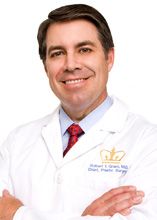Article
When to Perform Reconstructive Surgery in Children with Facial Birth Defects
Author(s):
Birth defects can set a family up for a lifetime of challenges, but thanks to some amazing advances in modern cosmetic surgery, there are options available to improve a child's quality of life.

While a baby’s health is the most important thing to all new parents, there are times when all does not go according to plan. Birth defects can set a family up for a lifetime of challenges, but thanks to some amazing advances in modern cosmetic surgery, there are options available to improve a child’s quality of life (QOL).
For children born with cleft palates or other facial issues, growing up can be a difficult and emotionally trying experience. In addition to potential peer conflicts associated with looking different, cranial birth defects can also create health-related issues, such as difficulty with eating and breathing. Through craniofacial reconstruction, these defects are repaired to improve a child’s appearance, as well as resolve many issues impacting his or her QOL.
Since each craniofacial procedure is unique, the approach and techniques employed are specific to the needs of a particular patient. That said, when it comes to addressing facial reconstruction in children, it is best to act as early as possible.
Correcting the issue early on ensures minimal impact on long-term health and emotional state, so that the child can grow into a fully functioning and independent adult. Therefore, examinations for correcting most facial birth defects should begin as early as 6-18 months.
Depending on the number of issues that require surgery, multiple procedures may be needed. For that reason, cosmetic surgeons often work alongside neurosurgeons and other specialists to guarantee a natural-looking, full-functioning end result.
Parents of children with facial defects like Treacher Collins syndrome may face a challenging road ahead, but it is important for us to help them understand the options that can make that road a little easier to travel. Evaluating a child early and planning a course of action will help ensure the future looks as bright as possible for the patient.
Robert T. Grant, MD, MSc, FACS, is Chief of the combined Divisions of Plastic Surgery at New York-Presbyterian Hospital-Columbia University Medical Center and New York-Presbyterian Hospital-Weill Cornell Medical Center. He is also Associate Clinical Professor of Surgery in the College of Physicians and Surgeons at Columbia University and Adjunct Associate Professor of Clinical Surgery at Weill Cornell Medical College. For more information about Dr. Grant or to contact him, visit his website at www.robertgrantmd.com.





